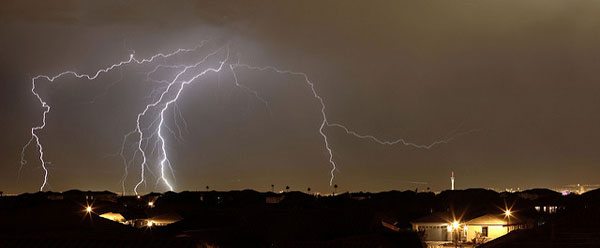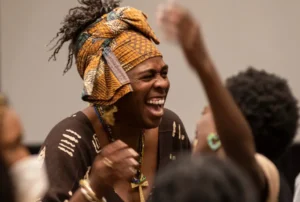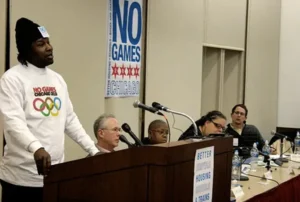
October 2, 2017; New York Times
Once upon a time, mass shootings in the United States were considered shocking. Today, the ability of such horrors to shock is much diminished, although the deaths and injuries that continue to accumulate are no less tragic for their familiarity.
This week in Las Vegas, at least 59 are dead and 527 are injured because of a mass shooting at the Route 91 Harvest country music festival, according to police reports. We at Nonprofit Quarterly join with so many others in sharing our condolences for all who have had loved ones killed or injured in the massacre.
According to the New York Times, since the mass shooting at the Pulse nightclub in Orlando 16 months ago mass shootings across the country have taken 585 lives and injured 2,156.
Nonprofits are affected by these developments in so many ways. Nonprofits are often among the first responders. Last year in Orlando, the Gay and Lesbian Community Center of Central Florida was “on the scene of the Pulse shooting in the early hours of June 12th.” Others also activated. The LGBTQ advocacy group Equality Florida made a commitment to “honor the victims with action.” This work has included “a safe and healthy schools project to ensure that queer youth are fully supported and included in their school environments” and taking a public stance on gun violence. Proyecto Somos Orlando was formed to coordinate the city’s Latinx “social services sector and raise awareness of the need to provide the victims and their families with high-quality culturally competent assistance.”
And then there are the public and nonprofit hospitals and mental health agencies that must also respond. In Las Vegas, a silver lining amidst the tragedy was that the shooting took place close to Nevada’s only trauma-1 hospital, the University Medical Center of Southern Nevada. In all likelihood, more lives would have been lost but for the presence of a first-tier trauma center within three miles of the shooting site. It was fortunate, too, that the hospital had just held a mass casualty training session with area first responders this past July.
Unlike some past mass shootings, no obvious motive has emerged in the investigation of the Las Vegas shooting so far. That said, many have observed that, as in Orlando, and also like Paris’s Le Bataclan shooting in 2015 at an Eagles of Death Metal concert and the bombing at Ariana Grande concert in Manchester last spring, once again music has been selected as a “soft target.” As Spencer Kornhaber writes for the Atlantic:
Sign up for our free newsletters
Subscribe to NPQ's newsletters to have our top stories delivered directly to your inbox.
By signing up, you agree to our privacy policy and terms of use, and to receive messages from NPQ and our partners.
Sunday’s attack brings it [country music] in line with other subcultures—rock and roller, teenage pop fans, queer Latino partiers—that have been singled out for mass violence. “Soft” targets like concerts can hold appeal for those looking to kill simply because they gather together so many people in one place.
Writing for W, Katherine Cusumano makes a similar observation:
Sunday night’s shooting is an attack on an event during which individuals came together, intrinsically and voluntarily partaking in a community because they have the same favorite song, even if for entirely different reasons. It’s something that transcends the politics of the musician (and, sometimes, of their fans), the genre of their music, or the makeup of its fan base—all of which differ radically among Grande, Aldean, and the members of the Eagles of Death Metal and their fans.
Music, beyond providing entertainment, binds people together—not just literally at concert venues, but by creating a common sense of community and belonging. When describing music fans, the term “subculture” is used for a reason: Music fans often do form common identities and build bonds with each other. It is not just the physical proximity that the shooters are attacking; they are seeking to rip apart our sense of social solidarity as well.
Of course, one way the nonprofit sector might respond to the mounting pattern of mass shootings is through advocacy on gun control. The data, after all, are pretty clear that there is a strong correlation between lax gun control laws and more deaths from firearms. It would be laudable if more nonprofits took this issue on, as well as other potential partial solutions such as better mental health services, more funding for trauma centers, and improved security at event venues.
But something much deeper is at work, too. Here at Nonprofit Quarterly, we seek, in collaboration with our community partners, to be a “news voice for civil society.” Clearly, mass shootings, by disrupting our sense of safety, can sow wariness and mistrust of our fellow human beings. Yet social trust is the bedrock of any strong notion of a highly functioning civil society. One way of thinking of our sector’s role is that we are in the social trust building business. In today’s climate, our work is cut out for us.—Steve Dubb












